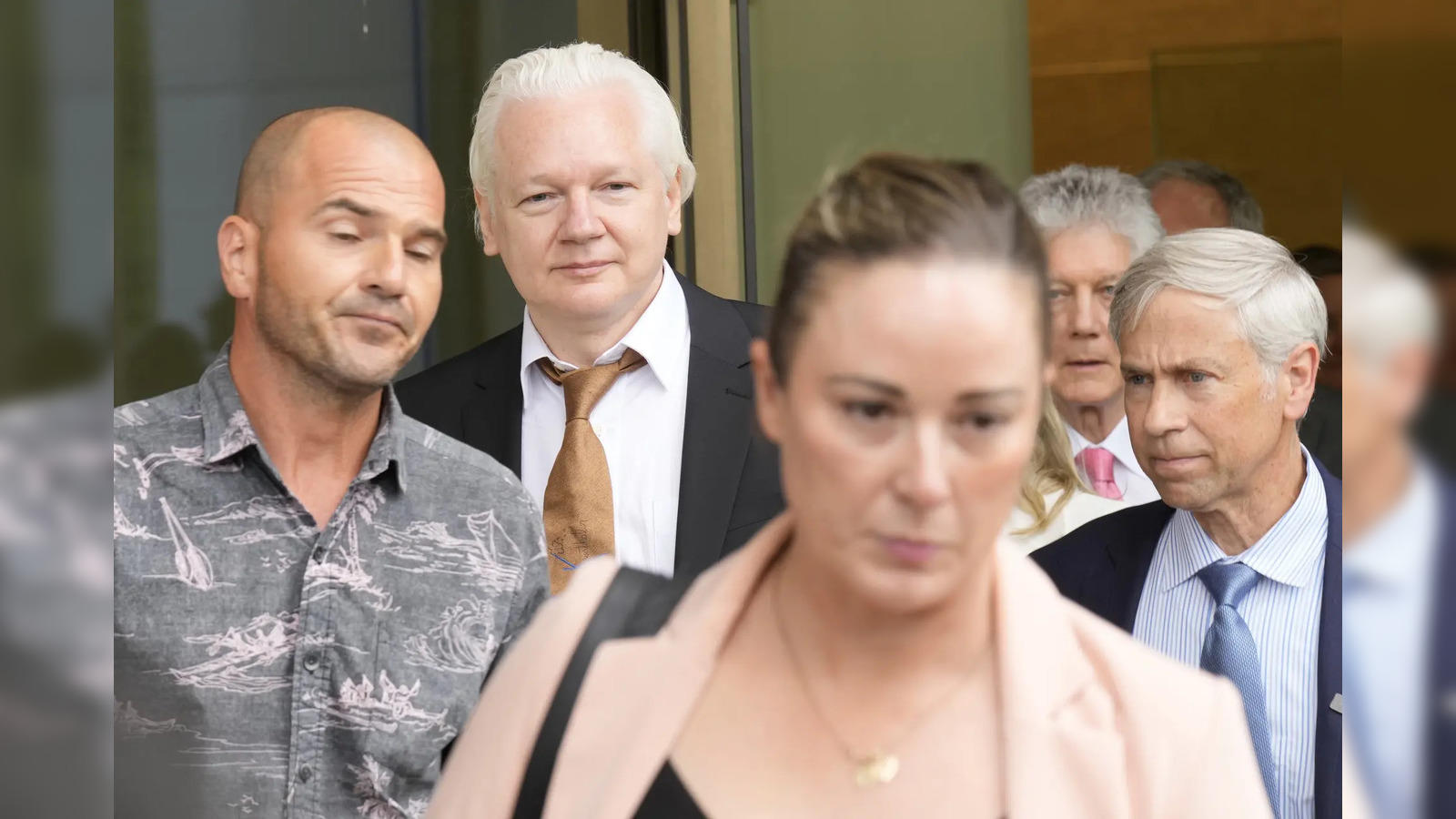When Julian Assange landed on Australian soil for the first time in 14 years, he emotionally hugged his wife and greeted the people with his fist in celebration.
When he left the airbase in his car, a few supporters present there welcomed him and shouted in joy.
But it was not a hero’s welcome, there was no large crowd.

However, if you look a little closer, it will be clear how hard the Australian government worked to bring back the Wikileaks founder.
Away from the lens of the cameras, his plane was followed by the plane of the country’s ambassador to the US, Kevin Rudd, and Australia’s High Commissioner to Britain, Stephen Smith.
Kevin Rudd is the former Prime Minister of Australia and Smith used to be Australia’s Foreign Minister under Rudd between 2007 and 2010.
And just minutes after Assange’s plane landed, Australia’s current prime minister, Anthony Albanese, addressed the nation and welcomed him home.
“I’m very pleased that this story is over and I spoke to Assange a few minutes ago tonight and welcomed him home,” he said.
This was a far cry from the feeling in Australia when Assange first got into trouble in 2010.
He released thousands of unpublished US documents on the wars in Afghanistan and Iraq, including footage of US helicopters gunning down civilians. This action brought great humiliation to Washington and allegedly put the lives of its informants and those working for it at risk.
Soon after, the Swedish authorities began pursuing him over allegations of sexual assault by two women, though Assange has described these as politically motivated allegations.
There was so little sympathy for Assange in Canberra that he famously said he had been “betrayed” by the then prime minister.
“Let’s not make a fuss about it, the information would not be on Wikileaks if there was no illegal activity,” then prime minister Julia Gerald said.
“And then we have a general understanding of the gross irresponsibility of this behaviour.”
Rather than defend him, Julia Gillard’s government said it was “offering every possible assistance to the US authorities” and called on Australian authorities to investigate whether he had broken any laws.









